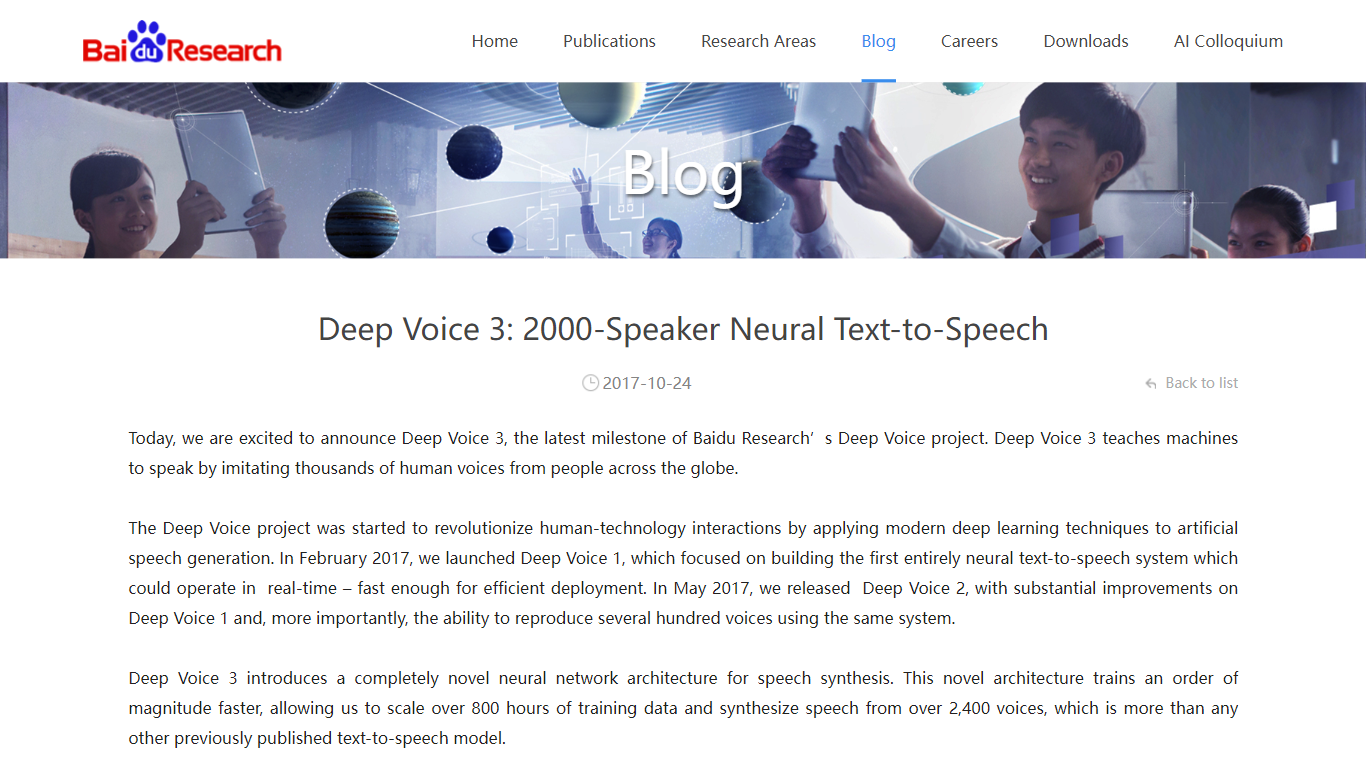Deep Voice 3 vs FakeYou
Dive into the comparison of Deep Voice 3 vs FakeYou and discover which AI Text to Speech (TTS) tool stands out. We examine alternatives, upvotes, features, reviews, pricing, and beyond.
In a comparison between Deep Voice 3 and FakeYou, which one comes out on top?
When we compare Deep Voice 3 and FakeYou, two exceptional text to speech (tts) tools powered by artificial intelligence, and place them side by side, several key similarities and differences come to light. Interestingly, both tools have managed to secure the same number of upvotes. Be a part of the decision-making process. Your vote could determine the winner.
Think we got it wrong? Cast your vote and show us who's boss!
Deep Voice 3

What is Deep Voice 3?
Deep Voice 3 is an open source text-to-speech system that uses a fully convolutional neural network to convert text into natural-sounding speech. It supports both single-speaker and multi-speaker models, allowing it to generate speech in various voices and accents. The system is designed to scale efficiently, handling large datasets and training quickly compared to traditional TTS models.
The architecture includes an encoder that processes text inputs, an attention-based decoder that predicts mel-scale spectrograms, and a converter network that generates vocoder parameters for waveform synthesis. This design helps produce clear and natural speech with fewer mispronunciations. Deep Voice 3 also supports training on phoneme, character, or mixed inputs, which improves pronunciation accuracy.
Recent implementations have demonstrated the model's ability to synthesize speech from multiple speakers with distinct accents and ages, showcasing its versatility. Audio samples from various English accents, including Southern England and Scottish, highlight its adaptability to different speech styles.
Deep Voice 3 is suitable for developers and researchers interested in building scalable, high-quality TTS applications. Its open source nature allows customization and experimentation with different model configurations and datasets.
While the core technology remains consistent with the original design, ongoing community efforts focus on improving training efficiency and expanding multi-speaker capabilities. The system's modular structure facilitates integration with other speech processing tools and vocoders.
Overall, Deep Voice 3 offers a balance of speed, scalability, and speech quality, making it a valuable resource for those working on speech synthesis projects that require flexibility across voices and languages.
For detailed technical insights and implementation guidance, the original research paper and open source repositories provide comprehensive resources.
FakeYou

What is FakeYou?
FakeYou is a versatile AI platform that transforms text into speech using a vast library of voices, including many celebrity and fictional characters. It allows users to create realistic voiceovers for entertainment, education, and marketing by mimicking famous voices with surprising accuracy. The platform supports text-to-speech, voice-to-voice conversion, and voice design, enabling users to customize audio outputs extensively. FakeYou appeals to content creators, educators, and fans who want to generate unique audio experiences, such as narrations or voice memes, using well-known voices. The service offers free access with premium subscriptions that provide faster processing, longer audio lengths, and the ability to upload and share private voice models. Its community-driven approach encourages users to explore and contribute voice models, enhancing the variety and quality of available voices. FakeYou balances fun and practical applications, making it a valuable tool for anyone looking to add engaging audio content with a personal or celebrity touch.
Deep Voice 3 Upvotes
FakeYou Upvotes
Deep Voice 3 Top Features
🎤 Multi-speaker support with varied accents and ages for diverse voices
⚡ Fast training speeds enabling quicker model development
🧩 Flexible input options using phonemes, characters, or both for better pronunciation
🔊 Generates mel-scale spectrograms for high-quality audio synthesis
🔧 Open source codebase allowing customization and integration
FakeYou Top Features
🎤 Celebrity Voice Library: Access hundreds of famous voices for unique audio creations.
🔄 Voice-to-Voice Conversion: Transform existing audio into different voices easily.
🛠️ Voice Designer Tool: Customize and create your own voice models.
⚡ Premium Speed: Get faster processing and longer audio limits with subscription plans.
🌐 Community Models: Explore and contribute to a growing collection of user-uploaded voices.
Deep Voice 3 Category
- Text to Speech (TTS)
FakeYou Category
- Text to Speech (TTS)
Deep Voice 3 Pricing Type
- Freemium
FakeYou Pricing Type
- Paid
